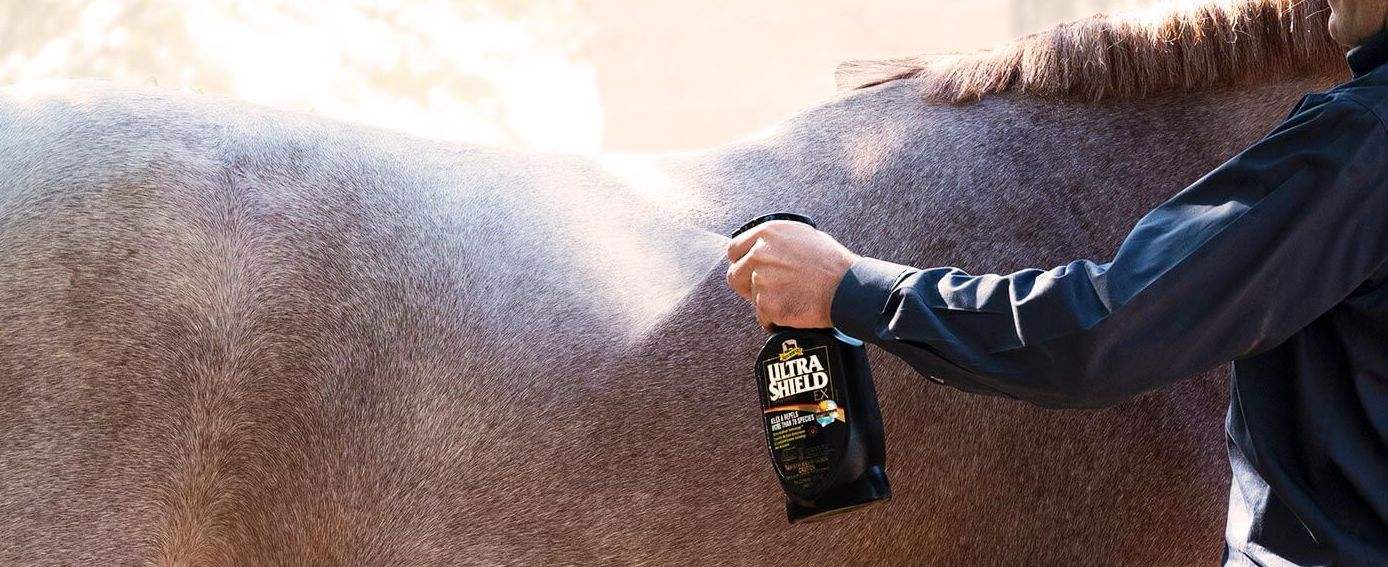
Oil-Based vs Water-Based Fly Spray Options
Should you use an oil-based or water-based fly spray? Well, that’s a good question! Every year we find ourselves fighting against pesky flies and other buzzing nuisances and are left facing the crucial decision of which fly sprays and fly control products to purchase. By breaking down oil-based and water-based fly spray compositions and their mode of action we can help you determine what products will work best for both you and your horse.
Oil-Based vs Water-Based
OIL BASED: Oil-based fly sprays contain oils, such as mineral oil or plant-based oils like citronella oil or eucalyptus oil, as their primary carrier agents. These oils help the active ingredients adhere to surfaces and provide a longer-lasting effect.
- Forms a coating on the skin or fur, which repels flies upon contact.
- May also suffocate or immobilize flies by coating their bodies.
- Leaves a residue for prolonged protection.
- Tend to have a stronger odor due to the essential oils or other aromatic compounds. (Some people or animals may be sensitive to these essential oils)
WATER-BASED: Water-based fly sprays use water as their primary carrier agent. They may also contain other water-soluble ingredients, such as synthetic pyrethroids or other insecticides, along with emulsifiers and stabilizers to keep the ingredients mixed and effective.
- Works by directly contacting flies and disrupting their nervous systems or physiological processes.
- Often has a faster knockdown effect but may not provide as long-lasting protection as oil-based sprays.
- Leaves less residue, and can often be preferred to use on horses who wear sheets or blankets.
- Typically have a milder odor and may be preferred for use around people or animals sensitive to strong scents.
Fly Spray Factors to Consider
Choosing between oil-based and water-based fly sprays depends on factors such as the desired duration of protection, ease of cleanup, odor sensitivity, and specific application requirements.
Here are some considerations to help you make an informed decision :
EFFECTIVENESS: Consider the effectiveness of the fly spray in repelling or killing flies and other insects. Both oil-based and water-based sprays can be effective, but the duration of protection and the speed of action may vary.
DURATION: Oil-based fly sprays typically provide longer-lasting protection compared to water-based sprays because they form a coating on the horse's skin and hair. If your horse spends extended periods outdoors or in areas with heavy insect activity, an oil-based fly spray might offer better and more prolonged protection.
RESIDUE: Oil-based fly sprays may leave a residue on your horse's coat, which can attract dust and dirt. While this residue can provide extended protection, it may also require more frequent grooming to keep your horse clean. Water-based fly sprays generally leave less residue and can be easier to wash off.
SKIN SENSITIVITY: Some horses may be sensitive to certain ingredients in fly sprays, especially those with sensitive skin or allergies. Water-based fly sprays often have milder formulations and may be better tolerated by sensitive horses. However, individual reactions can vary!
APPLICATION: Consider ease of application and whether you prefer a spray that can be easily misted onto your horse's coat or one that needs to be rubbed in to ensure even coverage.

Ultimately, the best choice of fly spray for your horse depends on your specific needs and preferences, as well as your horse's needs and environment. You may need to experiment with different products to find the one that works best for you and your horse. Here at NRS, we have a wide variety of fly sprays, rollers, ointments, and other fly control products to choose from! Contact our specialists in the NRS Feed Store for a consultation and we’ll provide valuable guidance tailored to your horse's unique situation.










